 |
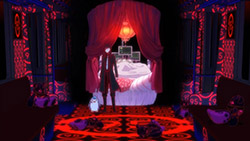 |
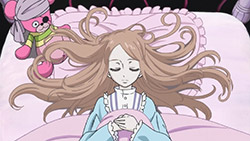 |
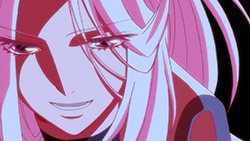 |
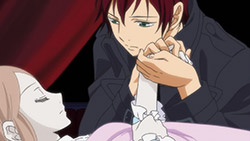 |
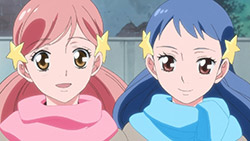 |
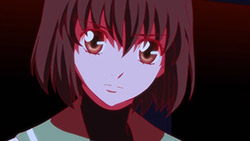 |
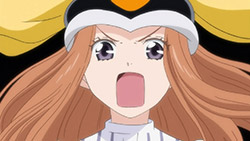 |
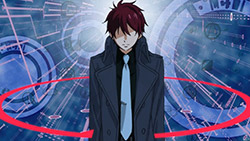 |
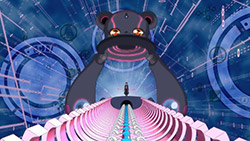 |
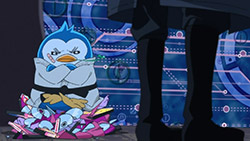 |
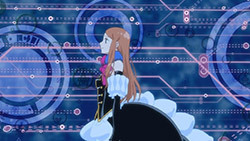 |
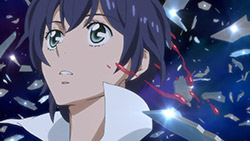 |
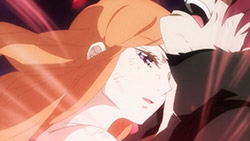 |
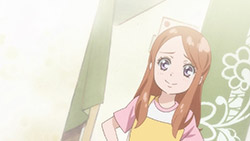 |
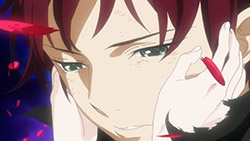 |
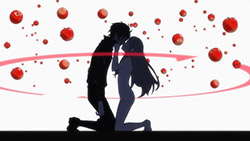 |
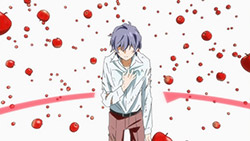 |
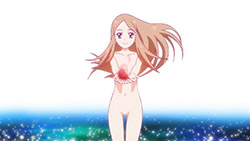 |
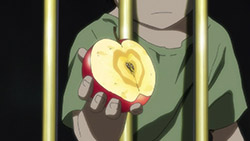 |
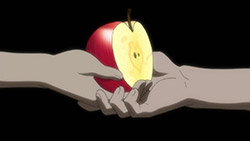 |
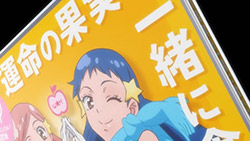 |
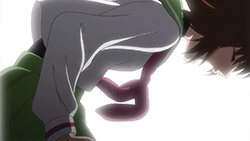 |
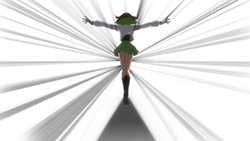 |
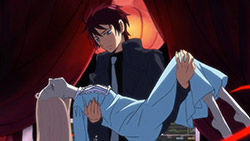 |
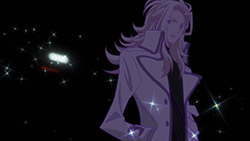 |
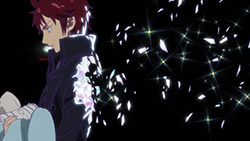 |
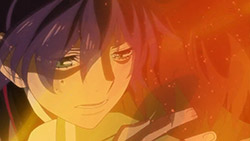 |
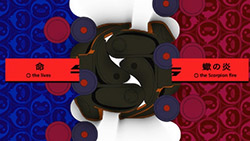 |
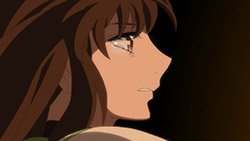 |
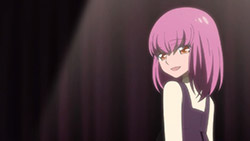 |
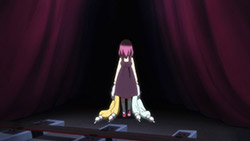 |
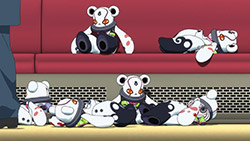 |
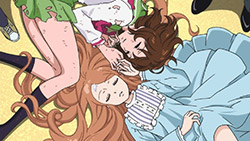 |
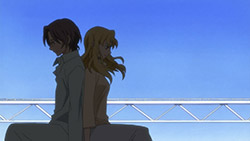 |
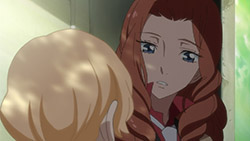 |
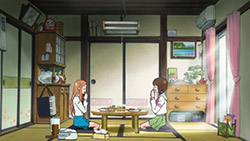 |
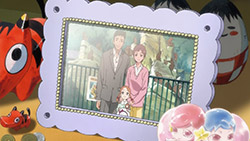 |
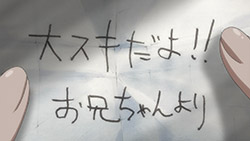 |
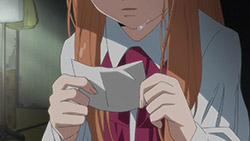 |
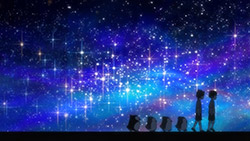 |
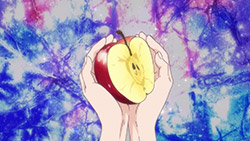 |
「愛してる」 (Aishiteru)
“I Love You”
If you’ve come here looking for answers to Mawaru Penguindrum’s ending, I’m afraid I don’t have them. The best I can offer is my interpretation of it, which is a bunch of fragmented ideas that revolve around the theme of neglected children and fighting fate. While the idea of transferring fates makes sense within the context of the show, I’m still at a bit of a loss on what it’s intended to signify in the real world (if anything). The thought did cross my mind that Momoka’s diary, the fruit of fate, the Penguindrum, and the ability to change someone’s fate are primarily layers of surrealism on top of the underlying theme, but I get the feeling that at least some parts of them are trying to convey a different message. My biggest hurdle when trying to construct a completely coherent interpretation of the story is whether or not everything that’s happened is supposed to symbolize something tangible. If it is, then I’m at a bit of a loss on how everything comes together. If it isn’t, then it’s a lot easier to look at each of the sub-developments separately and view the series as a whole as a collection of morals. Naturally, I’m partial toward the latter possibility. I find that there simply isn’t enough concrete material to form an understanding around, even though I spent the last six months looking at and writing about every episode in detail.
So where does that outlook take me? Well for one, it makes it seem like the story has moved beyond the idea that Kanba and Shouma are merely being punished because of their parents’ sins. Instead, it’s almost as if they’re reliving the same “curse” in a different fashion, where their only sin is “sharing the fruit of fate” and continuing to live when they should’ve died. The punishment for “cheating death” would then be Himari’s life, which they’re given false hope about saving to make it even more painful when she eventually dies. Where things get a little dicey is what to make of the boxes and the apple itself. Sanetoshi alluded to the idea that the box is oneself, saying he wishes to free everyone from their “boxes”, so it could very well symbolize the “social prison” that unwanted children find themselves in when they’re left on the streets and starve to death. The apple would then signify their new hope — or light — that gave them the strength to live on. After all, there’s been nothing to suggest that Kanba and Shouma were actually locked into physical cages, because even if they did find an apple to suppress their hunger for a bit, that doesn’t mean that they’re instantly free. As such, I’m inclined to believe the boxes are a figurative thing, as well as “sharing the fruit of fate”.
Where I’d probably draw the line on this theory is implying that fate works like some form of “equivalent trade”, even though Ringo looked like she was going to give up her life to improve the Takakuras. Based on what Momoka’s done in the past and what Ringo tried to do here, the need for “compensation” only seems to come into play when someone defies their fate and disrupts the “track” that the world is on. Whether intentional or not, Kanba and Shouma did just that by creating/finding their own Penguindrum — another chance in life that was divided between the two of them. Presumably, that “life” alone wasn’t enough for the two of them and Himari to find any true happiness in the world, so they both decided to give it up for Himari, Ringo, and Masako sakes, which effectively put everyone onto a different “world track” (or line if you prefer) where Kanba and Shouma never existed. The message is clear though — even when the world has abandoned them, unloved children can still find happiness. Well that, and sacrificing oneself for those you love. Kanba and Shouma appear to have been reborn as the two boys from episode one, who talked about how the apple is a reward for those who have chosen love above all else and how it doesn’t mark the end but just the beginning, so it’s a somewhat bittersweet ending.
End Card
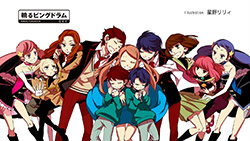 |
Final Impressions:
What can I say about Ikuhara Kunihiko’s original anime other than it was a fascinating series that was far too contrived to be fully appreciated. I really tried to take in all the signs and look for a deeper meaning in just about everything that happened, but it got to the point that he was introducing so many twists and turns — many of which were rather disturbing — that I couldn’t even get a good grasp of where things were headed, let alone pick up on all the subtle messages he was trying to convey. The first half of the series was largely portrayed in a comedic light with Ringo stalking Keiju too, which made it even harder to pick up on all the implications. For those reasons, I’m actually kind of torn over how I truly feel about this series.
There’s no doubting that it’s incredibly unique as far as anime goes, as it’s given me a new-found appreciation for multifaceted storytelling in this medium, but the fact that it didn’t really come together for me in the end has me humming and hawing over how much I actually “enjoyed” it. I never got a sense of satisfaction from finishing all twenty-four episodes and seeing all my confusion cleared up, so I’m inclined to recommend it based on its uniqueness and unconventional screenplay alone, rather than the feeling that it’s a “must-watch” series. I’m sure some people will feel differently — probably having gotten a deeper meaning out of the story than I did — but this is largely up to personal experiences and interpretation.
This by no means implies that I regret watching Mawaru Penguindrum though. If anything, I might regret blogging about it a little bit, because the series made me feel kind of dumb trying to talk about an episode that I didn’t fully understand. The saving grace was that most people were in the same boat, so writing about it became a bit of a thought experiment at times. If you’re one of those people who really like thought-provoking type of shows, then look no further than Mawaru Penguindrum. Just don’t expect to get clear confirmation on whether your interpretation is right or not, unless Ikuhara plans to explain his intended story in great detail down the road.
Update: This isn’t official, but this 2chan chart illustrates one interpretation of how the “fruit of fate” was shared between the Takakuras. It suggests that Himari’s portion “rotted” after the Sarin gas attack.

Ridonkulous ending was ridonkulous. Where’s the explanations of the three penguin helpers, the bad attitude of the “princess of the crystal” (what crystal??), seizon senryaku, and how any of that had anything to do with the Momoka vs. Sanetoshi situation?
Apparantly a lot of people loved the ending for its drama, but it all feels pointless to me because I didn’t get the answers I waited 24 episodes for.
Did you honestly expect this episode to be all about “so, viewers, the symbolism meant this and that and when this and that happened in episode x it meant y”? …seriously?
And you didn’t even understand that the three ‘penguin helpers’ as you call them were symbolism for the character’s inner feelings?
I’m sorry, but it seems this anime was too deep for you.
I’m not asking for a hand-holding session. But give some explanation for the PotC’s bad behavior, which is completely irreconcilable with Momoka. As for the penguin helpers, their symbolic position in the show doesn’t change the fact that they are actual characters with natures and origins that were never adequately developed. It seems they weren’t sent by either Sanetoshi or Momoka, so where did they ultimately come from, and how exactly do they work?
Also, gotta laugh at the textbook “it’s too deep for you” smug hipster response. Me wanting more clear-cut answers isn’t an attack on your new favorite cartoon, so grow up please.
@Anonymous
You’re looking at everything too literally.
Some examples: The child broiler is a metaphor of abandonment of children due to neglect, bullying, etc.
The parents are fighting against that. Sanetoshi similarly is more of a symbol than an actual character and represents the anger of the abandonment children at the world, which is why he wants to fulfill what the parent’s group couldn’t.
The cages were representations of the innate loneliness of people and inability to properly connect, which is a reason for abandonment.
I can’t believe you thought they actually had penguins…
I didn’t know “inner feelings” could hold physical things like the scene of chasing the hat on a truck. I tried very hard but my inner feelings couldn’t grab a coke from the fridge for me.
Then again, when you’re looking only for symbolism, you will only find symbolism, just like the people who said 1999, 2000, 2006, 2011 and next 2012 was the end of the world due to the symbolism with this relgion or that religion
@Heartist
I hold that theory as well, but consider the fact that Himari was saved by Sanetoshi, a ‘representation’ of emotions. At some point I started thinking that this series was based on what-ifs as in, what if these emotions became a person etc etc and then finally they do an almost Clannad AS-ish ending without the happy part (if we try to make the anime be ‘realistic’)
And no, the anime has not explained why Masako always says “Ew, I must crush it soon.” or why some people acted this way or that way. No one’s saying they are un-explainable, but the anime itself does not give a reason in the first place, so it is hard to assume a canon answer to these questions. Anonymous should give up with the question because the anime really didn’t have time to flesh that out so they left that part empty and just focused on the surreal part and the moral of the story.
—
“Also, gotta laugh at the textbook “it’s too deep for you” smug hipster response. Me wanting more clear-cut answers isn’t an attack on your new favorite cartoon, so grow up please.”
true, instead a clear rebuttal of those questions would have been great. For her behaviour, well ask the story-writer. For the relationship, I’d say those penguinhats were distributed randomly and by some random stroke of luck (read: fate), one of Momoka’s two hats found the sister of the two who held the penguindrum, while the other one accidentally went to Kanba’s sister. Coincidence? No, anime will say it’s fate.
And no, Masako’s father being someone who does not like to be crushed and who likes to crush other people does not necessarily mean Masako suddenly had a complex and say ‘I must crush it’ due to trauma. This does not exactly suffice, mainly because nothing in the anime integrated Masako’s change in character from childhood to who she is now (lack of episode length), but the development of the three main characters were pretty well-followed from their time at the meetings the Kiga Group held and etc.
It’s hard to point to a valid canon fact for a reason some characters have their quirks. Some quirks, like Shoma’s housewife-ness, of course does not need to be expanded because this is normal.
Minor correction Anon:
That’s Masako’s grandfather. Her father passed away during the Sarin gas attack.
“And you didn’t even understand that the three ‘penguin helpers’ as you call them were symbolism for the character’s inner feelings?”
So Himari really did want to strip Kanba down, tie him up, and have her way with him in episode 12? Huh.
The answer to what the penguin hats are was given. They are part of Momoka but Not Momoka herself the same way the rabbit boy’s are part Sanetoshi as a physical tie to the real world. The hat shares traits to Momoka but doesn’t have Mokoka personality the why the rabbits share Sanetoshi view but not behavior. The fact that Mokoka is actually specking through the hat on it’s own at the end is to intervene with Shoma directly.
So since no one understands what happened still………………………..This is not full metal alchemist…………I got trolled………..Somehow I stilled loved the bittersweet ending ,but still…………………WTF HAPPENED
since my comment is down below
ill just post it here http://i.imgur.com/owd19.jpg
Now it all makes sense………………………………………..nope….
Yup, still confused…
I came for the Seizon Senryaku. I left absolutely puzzled.
After 24 episodes of Penguindrum, I realized something.
Ikuhara has been trolling me for 6 months…
Not that i’m saying the series is bad, but still.
Thanks god i stopped watching this a looong time ago and picked up Mirai Nikki. Worth every penny.
You just picked up another stereotypical anime with a sissy male lead. *facepalm* And a yandere who isn’t Show Spoiler ▼
Anyways, this anime really left me speechless. Just so bittersweet. ;_;
How much money did it take for you to watch Mirai Nikki?
over the line dude
The pennies paid? ITS OVER 9000.
seizon senryaku. yeah i don’t get it.
If given the real answer, would any of us understand it (reference to Shinryaku! Ika Musume –
can’t remember which series/episode where she gives Eiko the answer to how she can solve
any math problem and Eiko doesn’t understand the answer).
You would need an actual answer to give an answer. After which people would point out your answer either sucks or only applies in certain situations. The safe way is to make it so that the answer is whatever you think it is. Saves the writer from getting bashed by the public.
42 it’s always 42.
But seriously Ikuhara goal was to show the bonds and length of support of family (or lack there of) and there is no perfect answer because their is no perfect form called Family.
The hardest math is the math you can’t understand.
If a human being is able to understand this, then we should be able to do so too. In stark contrast we can never understand how a bat feels sensations when they ‘see’ things in a dark cave.
wtf are you talking about…………….
I agree with your explanation of what happened to Kanba and Shouma when they were young. My take on this whole story is that the world must exist in equilibrium. If one’s fortunes is to change, then so must someone’s misfortune.
Kanba and Shouma had cheated death, which caused this downward spiral of chaos. They both know that the only way to truly make everything okay again is to accept that the should not have existed past their childhood, which I believe is symbolized by Shouma ripping out his half of the apple from his body. Because Ringo would have been down a very different path had she not met Kanba and Shouma, she was spared from the consequences of changing the fate of many.
Either way, I believe this series is worth a rewatch to see if the story becomes a lot clearer the second time round, and if it does I might be inclined to say this is potentially in my top 10 anime of the year.
On a side note, I loved the part when Shouma finally admitted his love for Ringo, though it was too late.
Its never tooo late……………… The anime was so genius…Ikakura doesn’t even understand what he was trying to say….but he message reached everyone I think. In a odd way that confused the hell out of everyone and still doesn’t make since…but you feel it
That’s really the point isn’t it. Pengdrum is more ladden with symbolism than an African swallow, to the point where even the director has no deeper understanding of what he is trying to convey. It gets points for being original, but if you actually stop to think and process it you’ll only be scratching your head for a long time trying to piece together deeper meaning where there isn’t any to be found.
I enjoyed the show thoroughly, but there are still some nagging questions to be answered.
I can forgive the lack of answers for the penguins, Hat Momoka, why the seizon senryaku sequence goes into a different “world,” and so on, but this one is currently bothering me the most:
Why the hell do Yuri and Tabuki get to remember Momoka, but Himari and Ringo don’t get to remember Kanba and Shouma?
It doesn’t bother me enough for the ending to be bad, per se. I loved the ending and don’t think it could have ended any other way. A happily ever after ending was very obviously not in the works with the tone of the past few episodes. I was bawling during the seizon senryaku sequence where it was Himari, not Princess of the Crystal, facing Kanba and “bringing him back” to the light. The three talking about their memories with one another was very touching, especially since it was all about to get undone. The Penguindrum being what Kanba had originally shared with Shouma, the ability to live as a chosen person, was simply wonderful. Kanba and Shouma giving up their existence in order to let Himari and Ringo live on happily was so heartwarming. I think I nearly lost it when Ringo tried to grab Shouma before he disappeared, too. Plus, the bookend with young Kanba and Shouma walking along with the stars and talking about Night on the Galactic Railroad (with penguins in tow) at the end was a great callback to the first episode.
All of that, plus how absolutely gorgeous the art direction was. It was a lovely way to send the series off.
Overall, I’d definitely chalk this series up to one of my favourites and “will watch again” (as well as purchase). I love the message of the series and the morales it touches upon, but I’d love if Ikuhara and/or the final volume of the novel actually sheds some light on certain things.
morals* not morales*
2AM typing is suffering.
Momoka was born with the gift to alter fate and take the consequence onto herself. While Kanba and Shoma created they own fate that had derailed the world and scattered the misfortune it created for not just their family but rippled to others they were involved with. The fact they at that point they were dieing means that they were not to existed in the world from that point on.
The reason everyone forgot including Masako and Mario is because they took all the punishment for resetting the world to make all the people they cared for healthy and whole (mentally as well) but also carry a wish for all to live there lives unchained to others sins through love.
Thank for reminding me were the excepts from, as I’ve only wanted the anime adaptation of Night on the Galactic Railroad.
See, but all of that is speculation.
I thought the same thing, that Momoka was a real person, but Kanba and Shouma were living on borrowed time thanks to splitting the penguindrum between themselves, but their existence being erased and forgotten just seems too convenient to me. I don’t need it to be spelled out for me and slapped in my face, but it just doesn’t come together very well at the moment.
It’s probably something along the lines of Kanba and Shouma not wanting them to remember, so that they can live on happily without sadness at losing them. However, something like that should at least be alluded to, not speculated.
Update:
Ivana over at 8th Sin’s blog helped clear up the “Why do Tabuki and Yuri remember Momoka?” thing for me, in case people are still speculating.
It hadn’t crossed my mind, despite being the most obvious choice.
I am still thrown off by the significance of the conflict between Shoma and Kanba, since one of the major themes appeared to be the dichotomy of their paths. However, it seems to me that between all the flashbacks and the motives we are presented with, they have just been walking the same path of atonement. It’s perfectly understandable that each have different motivations, but I really didn’t feel that those motivations were strongly connected to (or reflected) the ways they handled the burden of prior sin.
As a result, I was not “satisfied” by Kan and Sho becoming sacrificial lambs for all the lost children. Maybe it’s just my bias poking out here, but I don’t think “erasing yourself from existence to save your loved ones” is much better than “dying some awful death in the place of your loved ones.” Maybe it’s worse, because that is a world that denies the heroism and sacrifices made. It’s frustrating because in this episode, Kanba just didn’t do anything. He’s been setting so much into motion these last few weeks, and now, come fate transfer, he’s perfectly content to walk past Sanetoshi as he dissolves into light. Things start feeling non-sequitur because it becomes so hard to tell which actions actually mattered. But maybe that’s the beauty of such a philosophically-rich story: it’s the process, not the conclusion.
Ultimately, I still think MPD is one of the most riveting tales spun this year. It was unpredictable, shocking, possibly even heretical at times. Conventional morality was woven with the most unconventional sides of morality, and then left to sit out under the sun for a bit. There truly is a little bit of everything, and the list of social commentary this show might be making is quite long. The ending didn’t quite hit me in a “this-is-what-you’re-supposed-to-take-home” manner, but that’s fine. It was fun.
Sanetoshi said to Kanba “You won’t leave even a speck of dust behind”, and then after Kanba dissolved and Himari and Ringo were found, there was a single shard of glass on Himari’s forehead. RIP.
Shouma and Kanba are Giovanni and Campanella reunited in the end. An interesting thing to note as well is that theyre wearing the same thing they were wearing in the cages.
Also, note that Kanba and Shouma wanted to send a message to someone if they were to die the cages, and Himari gets a note from them after their sacrifice.
Personally, I’m just sad that nobody knows of their sacrifice..
I found it fitting that they told her that they loved her, cause I think this is one of the major themes of this show. As Tabuki has stated, they just needed to be told that they were loved. The people “that will never amount to anything” (the forgotten/abandoned children) do have someone that loves them.
Can you save someone by loving them? In a sense, you can.
This might only be me, but I think “people who will never amount to anything” doesn’t only mean forgotten/abandoned children but also those who were rejected and those who might not experience it but feels that way.
good catch! Now to understand what those cages actually are…-___-
From what I caught, the regular penguin logo (not the two faced one) seems to associate a lot with situations where one is “chosen” or simply “not chosen.” But the fact that kanba broke out of the conventional way of thinking (splitting the apple rather than accepting the fact that he is the only one that can be chosen), making me think that perhaps this penguin logo represents a representation of fate where you control your own destiny.
On the other hand, I’m not sure how to even start interpreting the two faced penguin…
I still don’t know what the “curse” exactly is, but from what Satenoshi has been saying these past few days, I think it’s the disbelief some people feel when life throws you curveballs and hardships. I don’t know why the Takakura parents had a grudge against society, but perhaps their “curse” was their inability to find love, so they sought to destroy the world. Hence why he says “the train will come again,” because we all know there will always be people that resent the world that refused to give them love. But as Tabuki said, for the un-loved, you just need someone to show you that you can be loved.
I’m still kind of fumbling in my mind as to what the ending really MEANS and how it ties it all together, but even the simplest of messages in the episode were enough for me. The shared apple (sob), happiness even after everything is taken away from you, never forgetting the memories you had (however painful they may be). It helped me to watch the episodes the first time around without overanalyzing everything, then re-watch with my thinking cap on, because a lot of the emotions came from really simple concepts such as family, sacrifice, love, etc.
What’s everyone’s favorite moments from this episode? Mine definitely had to be the moment the half “heart” turned into half of an apple. The surreal flashbacks to sho, kanba, and himari’s childhood are also tearjerkers for me. And finally, the note…aw jeeze…I am glad that, although many things were lost, those who sought happiness seemed to have acquired it through love <3333333
I’m surprised an anti-Semite watches anime. I thought they were too hard for that.
I don’t subscribe to the “reborn” theory. That ending was almost literally “Night on the Galactic Railroad” – except both of them were Campanella…
+10 for the use of a 1930s, Japanese novel comparison. I wonder how many will actually understand the reference.
I agree, but there’s also a 1980s anime that I suspect many more people will have seen than have read the novel.
Considering the Vocaloid song Campanella is rather popular and Night on the Galactic Railroad has been mentioned ad infinitum in Penguindrum theory threads, I’m sure more people will catch the reference than you’d expect.
“I might regret blogging about it a little bit, because the series made me feel kind of dumb trying to talk about an episode that I didn’t fully understand”
I’m pretty sure most of us are like that. Even though much of the show’s content escapes me, Mawaru remained as one of my most anticipated each week. As such, I would have liked to make some productive posts but never done so since: 1. I don’t get most of it and 2. Philosophical debates are not my strong point.
But talking about it, even if you don’t understand it, has purpose. You’re supposed to talk about it, and think about it.
You’ve prolly heard that Art (notice the capital A, man) is a mirror held up to you. What do you see? Tell yourself what you see. Tell me what you see. Let’s compare notes. This is a captured fragment of life. Talk about it. That’s the important part.
You might see something moving, beautiful, and powerful. You might see something horrifying, disturbing (I will never in my life forget the image of poor Himari on that conveyor belt), or even ugly.
I think enough was given in this series for anyone to make a good series of questions and answers for themselves.
Seeing that Shouma is living on ‘borrowed time’ thanks to Kanba, and Kanba cheating by giving said time away, they both are punished, resulting in their removals from the world. Then the 2 boys walking at the end cannot be their reincarations… even though they have the same face, voice, and penguins following them…
This anime ending is also bothering me because I am trying to remember the ending of another anime with very similar context (male/female lead losses memories in some fashion about the male/female secondary lead, but chances to meet somehow and s/he starts to cry for unknown reasons)
I think many stories use that trope. Petite Princess Yucie came to mind first though.
are you thinking of Madoka?
Da Capo II? Although the main heroine remembered the main hero. Then again Da Capo I’s second season does another similar memory loss thing. Then there’s Angel Beats…etc
A purposeless Shouma saved Himari and gave her a family, thus shared his apple with her; Himari was henceforth given a purpose, but keep in mind that Shouma received nothing in turn. Then Kanba gets accepted into the family and Himari gives him the bandaid to keep the pain away, thus Kanba decides he’ll do anything for her; here Himari was unknowingly sharing her apple with Kanba, because she gave him a purpose. Kanba was able to actually receive the apple because he wasn’t completely empty and devoid of purpose like Shouma himself was, as Kanba already had precious people he wanted to protect (Masako and Mario, his words on the cage are a reference to them) as such his “box” was able to connect to the outside world, if only for a moment and the apple reaches him. And when he shares it with Shouma, Shouma’s purpose becomes precisely that: Himari no Tame Ni + Kanba = Takakura Family’s wellbeing.
That’s the reason why Shouma is so single-minded about keeping the family united; because thats’ what gave meaning to his existence, as such was what he inherited that day Kanba shared his apple with him. He, however, still remains kind of empty and from that comes his apparent uncapability to love, but Ringo comes around to change all that. When Ringo (whose name speaks for itself) comes around, she effectively becomes an apple for Shouma, a “whole” one all to himself, and she fulfills the part of Shouma that had remained closed-off to the world. He isn’t able to accept it however until he lets his barries down. The key difference here is that Ringo’s metaphorical apple didn’t give him a purpose, as he already had one, but gave him the will to break the chains of fate and be assertive, which is what he lacked.
The scene in the box with Shoma speaking about not having anyone important to send a message to illustrates how empty and unloved he felt at that point.
I think this is the best summary I’ve read so far. I’m glad someone connected the dots (or maybe I should say apples… so many apples…)
I like your argument and I also see where you’re coming from, but allow me to make a different interpretation of that scene:
A lot of Penguindrum , as I’ve noticed throughout the episodes, goes back to the fundamental ideas of Buddhism; each character wants to reach this sort of nirvana where they become something greater than themselves. Tabuki, Yuri, Ringo, Shouma, Natsume, Kanba, Himari- everyone wants to revoke their faults and become ‘perfect’. If I could sum up Mawaru Penguindrum in a couple of words-if I were forced to, I would sum it up as a character study. Murakami, another surrealist writer, emphasizes the same points: he describes that “More or less, all of us want the answers to the reasons why we’re living on this earth, and why we die and disappear. We shouldn’t criticize a sincere attempt to find answers. Still, this is precisely the point where a kind of fatal mistake can be made. The layers of reality begin to be distorted. The place that was promised, you realize, has changed into something different from what you’re looking for.” (courtesy of Colloquium) It’s ironic however, that at each character’s greatest weakness- Ringo, about to force herself on Tabuki, or Tabuki, about to kill the Takakura children- that they ultimately realize that in being faulted, in being invisible, they were able to be loved. Love is the greatest knowledge on this earth; Adam and Eve shared the Apple of knowledge, which gave them power, but also gave them sin. To live is the greatest punishment. But in living, we can love; and in loving, we can bear the sin, and that sin can turn into a blessing. Each character understands this basic relationship at their lowest point of despair.
For Kanba, the most complicated character in this show, that point was now. Kanba was chosen from the very start; he was the original inheritor of the Apple, and as Fate would have had it, he would have gotten out of the Box, leaving Shouma and Himari alone and unwanted. But instead, he did something unprecedented. He shared the apple. Half to him, half to Shouma. Shouma in return, gave his Apple to Himari, creating their link. This episode was all about completing that circle. In giving her Apple to Kanba, Himari did not just acknowledge the essence of the revolving Penguindrum; the bonds shared between the three; that the reason they existed was for each other. To share their burdens, their happiness, their pain, as a family. Which answers what Ikuhara had at the very beginning asked us: What do we define as a family? Is it based on blood-bonds? Is it based on a shared inheritance, on mutual interest, on the idea that “one rotten apple spoils the entire bunch?” Are bonds formed through materialistic desires; through money, through gifts, through bargaining? Ikuhara argues that while family bears punishment, bears sin, just like an individual human being, it is also where true happiness lies. As Tabuki concludes, “All we needed was for someone to tell us that we were loved.” A home to come to. And that is what the Takakuras, despite not being related, despite not being financially successful, or intellectually brilliant minded, were: a family. Ikuhara tells us that it doesn’t matter if we don’t leave an impact on the world, if we are forgotten by humanity, left to decay in the dust. If we are loved, that gives us true shape and definition. And as Himari finally gives her Apple to Kanba, completing the circle, creating and establishing the Penguindrum, Fate is broken; feelings are finally resolved.
In other words, I think you’re thinking too literally of the apples. I think Ikuhara points out that apples can be shared, and given by fate, but they can also be created by the individual. Shouma pulls out his “heart”, or his “apple”. Part of that apple originates from the apple Kanba had given him while they were in their boxes. But the other part of that apple is created due to shared emotions. The Penguindrum is not a singular entity; it is rather a cycle of bonds. The idea of reciprocated feelings- of sharing emotions, of fulfilling other’s ideas of happiness with your own. In that way, I think Himari giving Kanba the apple was completing that cycle, creating the Penguindrum- the bonds shared between this trio, the feelings which in essence, defy fate itself, allowing Himari to live, albeit at the stake of Kanba and Shouma becoming the Scorpions and sacrificing themselves. Kenji Miyazawa states that the apple reflects the hugeness of the universe outside ourselves. Just like there’s a world outside the apple’s skin, the universe doesn’t end at its own edge either. Outside of our own universe, there’s something even bigger surrounding it. If we can compare that to Mawaru Penguindrum, the apples represent the soul of the beings who hold them. Each character gain their “Apple” through self reflection and realization that they were loved, and that they loved in return. For Kanba, it was that realization, with Himari giving him her Apple that she shared with Shouma- the same Apple, or collective sort of feelings that Kanba had shared with Shouma in the first place. Shouma in that aspect is a medium of feelings, as he has been throughout this show. No doubt, by having Ringo in his life he was able to realize his self worth (though at the last minute) as well as his faults, but he also realized through Ringo that he was loved- and that he was able to love back, despite all his fears that he wasn’t able to do that. And in that realization, just as the realization so long ago that he could love someone, he offers his Apple as a sort of self sacrifice. This time, not to Himari, but to Ringo.
Of course, this is all subjectively speaking, so heck, I may be- as Ikuhara would have it- off track. 🙂
That…that sounds plausible.
It does clear up the whole Mawaru bit.
Maybe I’ll put up a more coherent reply later, but kudos to you.
wow your reply had me tear up a bit I think you summed it up perfectly simply lovely
The series , as the life itself, leaves you with more questions than answers… you can interpret it in whatever way you like!
I am not that big on symbolism and deeper philosophy in anime, but still enjoyed the series.
Love it or hate it you can’t pass it by indifferently…
It might be a bittersweet ending, but definitely I find saved Himari and Ringo a good outcome, even if at a price of Kanba’s and Shouma’s very existence.
What worries me more is defiant Sanetoshi waiting for “another train”.
Therewill always be a Sanetoshi waiting for “another train” so long as there is humanity on Earth.
“Love makes the world go round”
“Children shouldn’t be alone”
“You will never be as fabulous as Sanetoshi”
Those are the messages I got from it all. It was a fun ride and I’m not going to scramble my brain trying to grasp all the loose ends and symbolism. The finale was a bit of a mixed bag but the punch from seeing Himari find the note in her bear made up for the problems. It’s been a while since anyone got an emotional rise out of me so props to you Ikuhara you troll.
Funny how you mentioned you regretted blogging MPD a little bit. I can imagine how tiring it must be talking about a series as convoluted as MPD on a weekly basis. It’s hard to keep up with the curveballs that Ikuhara keeps throwing at us and this finale is about as surreal as it gets. Someone who enjoys the deep and twisted ways of surrealism would probably appreciate this series a lot more. For me, the best part of MPD would be the visuals and that is something Ikuhara has consistently delivered on.
I don’t Kanba and Shouma were reincarnated. I think because of their sacrifice they became beings like that doctor. They exist but they don’t exist like guardian spirits. I don’t think Himari and Kanba’s sister are aware of the penguiens anymore. The penguiens following the brothers only hinting they exist but not it human form. But all in all this is one confusing anime. The flashbacks have been changed so much that they contradict each other. It would of been nicer if both brothers continued existing along with Himari and Ringo.
Everyone’s grumbling about the ending but I absolutely loved it. I won’t say that I understood everything, or that all my assumptions are correct but I think it explained enough that it was satisfying and the emotional punch was enough to make it a good ending. I hope next season will have more shows that that make you think (or just troll you) as well.
I think this show showed that everybody needed love and that alone is enough to change one’s fate even though it comes with a price.
All in all, a very beautiful and creative show, one my best for this season.
i dont like the ending .. it so sad , where they exchange both of their life for one person Show Spoiler ▼
, and what worst is none of them remember them for the heroic sacrifice then what is the point of both brother being sacrifice for , at LEAST make masako, himari and ringo remember the shouma and kanba ‘s sacrifice will be at least better than this ending. it seem that momoka leave with the two penguin hat might be Show Spoiler ▼
I guess the problem is the contradicting flash backs and after Kanba and Shouma come to realization to selflessly sacrifice themselves for the people they love they weren’t really rewarded. Their loved ones forgot they ever existed. The whole terrorist actack 15 yrs ago doesn’t make any sense. It was clear Shouma was the son of the so called terrorists Takamuras which now Himari completely replaced and now adopted by their uncle. Kanba was the son of the friend of Shouma’s father who apparently was also Masako’s own brother who split up due to a rift between their father and grandfather. Now contradicting flash back was when Himari was adopted into Takamuras due to Shouma after she was abandoned by her mother where she seemed like she was a year younger than him and at the time both Kanba and Masako were still together. When Kanba was adopted into the Takamura family Himari was already part of the Takamura family with Shouma and she seemed much younger and it also seemed both Shouma and Kanba were also 2-3 yrs younger then when Shouma saved Himari. Another contradiction is there were pictures of them younger together.
If you look at the family photo, though, Himari is with a new pair of adults. Is this her uncle and aunt, or perhaps did the transfer of her fate give her a new pair of parents?
The seemingly contradictory age appearance of the kids is difficult to gauge in that the kids have to be drawn consistently and obviously at different ages, and anime sucks at that more often than not. I personally didn’t feel that aspect was too confusing, but I guess I stopped trying to plot the events chronologically a while ago…
i was expecting a more..’fabulous max’ ending i guess.
but i loved this anime. yet will probably never fully understand it lol
thanks for blogging it!
Just simply beautiful.
i hope there will be an OVA or Movie to explain all of it.
yep another deep ending by no other than ikuhara.
I thought the way it ended Show Spoiler ▼
, I totally did a double take when i realized that was in episode one (at the time i just thought they were being stingy with the voice actors). it ties in nicely with the train and circle imagery. quite a lot of things were stated before but we didn’t yet see relevance in. this is definitely one of those series that you’d watch over and over to really get the full breadth. everything from the title of the book that himari wanted to rent from the library to the scar on her forehead that her mother wanted to protect her from years after the fact.
While at first i thought the ending wasn’t fabulous, i realized it was incredible once you took everything into consideration.
actually, the only real question i was left with was… how the hell do you split an apple neatly in half when you don’t have any utensils?
quite simple…
if you’re a black belt at karate and a physics major =S my old physics teacher, who just so happened to be a black belt, too, twisted an apple cleanly in half in front of us with just his bare hands.
I’ve failed to do the same thing, since.
…I would imagine it would be as easy or as difficult as splitting any other metaphor. It was his apple, he could do whatever he wanted to with it….
What I got from the ending conversation between kid Sho and Kanba is fate is like destiny. Something you were brought into the world to do. “The apple is a reward for those chosen to die for love” In the cages, Kan shared his reward apple with Sho and so thus they were both “chosen” and fated to die for love. And they did, they died for their loves (Himari,Ringo,Mario,Masako)sake in order to move the world to a fate line (track) where all the exploding teddy bears on the train were white instead of black and everyone was happier. “But when you’re dead its all over” “No, that’s actually where everything begins” It gives me the feeling that Sho and Kan didn’t originally exist in the ‘real world’/were not meant to be alive for very long. By eating the apple and dying for their love they got the chance to both save their loved ones and restart/continue their real lives as opposed living in the fake Takakura “family” and this is their apple ‘reward’ where ‘everything begins’ for them. Kind of like how Momoko died saving her two best friends from the child broiler. Sanatoshi stopped her though and she split into penguin hats. So when she leaves Sanetoshi at the end I figure she’s going back to the real world like Kan and Sho did because the brothers found their penguindrum and finish what she started. And that is JUST the literal idea i got from the context in the last few minutes of the show. I’m not even going to bother thinking/writing about the possible figurative,allegorical,symbolic ones :'( I kinda liked how amusing Penguindrum was to watch, as long as I didn’t over think things it made me feel like something deep and powerful was going on in this world. And plus it was always pretty interesting, if not a little frustrating when I kept watching even though I knew i was being trolled AHAHA I kept thinking how much Ikuhara must like stars,sparkles and billowing red fabric. DIVINE THANKS FOR HANGING IN THERE FOR ALL 24 EPISODES OF A SHOW THAT MADE YOU FEEL DUMB!! <3
Ok…Ikuhara didn’t ruin my Christmas completely, but I wished that he’d make it…happier. He didn’t. Oh well…
I have to say that I didn’t expect BOTH of them to die. I was thinking it will be Shouma or Himari, but Shouma AND Kanba? I was surprised!
I’m also a little bit confused, but one thing is clear for me: apple, a symbol of love, was their real penguindrum. Kanba and Shouma took the “punishment” that they escaped before – thus saving Himari.
Even though it was beautiful, I’d prefer a happier ending where everyone lives. It might look like Kanba and Shouma are reborn but I think their talk about “The Night on the Galactic Railroad” implies that they are like Giovanni and Campanella now.
I’m glad that we got some HimarixKanba and RingoxShouma bits this episode. Shouma saying “aishiteru” to Ringo made my heart broke, so emotional! It’s a shame these pairings can never be…at least Yuri and Tabuki are together!
Also, lack of Triple-H at the end left me surprised a little bit, too. But I think it’s better like this – now, Himari’s best friend is Ringo.
Even though I probably won’t ever rewatch this series (because of the depressing ending), I’m glad that I took that train. Sure, it went downhill (first part really feels like a spin-off to me, and to be honest – I preferred it!) and made me rage for few occasions, but “Mawaru Penguindrum” remains one of the best anime I’ve ever seen.
This show, I think, deserves another viewing. I re-watched part of the first episode and I laughed when the entire series was basically summed up in the seemingly insignificant conversation by the two little kids in the beginning. I also caught on to some other ironies and foreshadowing in the beginning of the first episode. So I think that the answers are there, you just have to take the time to catch them. This makes me have more faith in the series, because it shows that the ending arc, at least, was planned from the beginning rather than them making it up as they went along.
Sanetoshi has become one of my most favorite villains in any anime.
Just rematching the last episode helped to understand what was is going on in the end as I missed meaning in the dialog initially.
I posted this somewere else but here’s my take in the end:
So the sharing of the Apple (tree of knowledge) is the Penguindrum does that make the Evil/Cyclical (Mawaru) Penguindrum the box/crates that we live in/shoved into by others.
I think you can change fate so long as you don’t change the time we are given and what the world has to offer.
Recently in my life a young mother died of a heart attack for no apparent medical reason despite being extremely health conscious. Life doesn’t gives us answers to what we want but gives us the time we need.
Sorry to hear that, Ani_BEE. I have to say shows like this can certainly be harder to watch if you’ve experienced some of the themes they explore, but then that reinforces how central those themes are to being human. At any rate, despite what you said below, I don’t think you’re spamming. The more ideas on what this all means, the better 🙂
I think the series played on the word “fate” so much. The beginning I thought the story is going on a clear direction but later become confusing with lots of symbolism and as if the producers just kept on adding “stuff” every episode that each will add a confusion to what was already established. The story is promising but I think the execution is just poor (or rather too creative for my liking?). Animation wise, it fits the word “fabulous max” but there is a lot of inconsistency that are very noticeable, music is good that it added extra depth to what is happening on screen. As for the characters, I found them all likeable with some minor annoyance (thanks to “fate”).
Story: 4
Animation: 6
Sound: 7
Character: 7
Enjoyment: 3
Overall: 5
This is more confusing than Tsubasa Reservoir Chronicles.
I should also point out that Momoka exiting with both the hats in hand means she is happy to leave the world to it’s own devices.
Sanetoshi was also never seen by the people except ones effected by Kanbas and Shoma decision in the waking world. Ringo never met him till the end when she too wanted to change fate.
The doctor that knew Sanetoshi talked to him only in a dream as that was a week connection.
Until someone tries to alter Fate again Sanetoshi is stuck in the Library Tower (Tree of Knolwdge?) unable to interfere with the world as a none entity.
The ending with the Penguin, we see #3 delivering the message to Himari although she has forgotten them in her memories her heat/soul remembers a carry them with her.
The fact that both Kanba and Shouma along with #3 three packing her belonging with the other penguins including Esmeralda are walking forward unchained to a location is a reward for valuing love over destruction unlike Sanetoshi as the penguins are the precious feelings and memories that as fallowing the boys.
Sorry #3 took the bear as well with her as well when they were loaded into the Box (that didn’t drop into the void at the last minute) and left it for Himari with the message from the boys.
The are A LOT of things built into the visuals of this episode that will be lost/missed, so sorry for the spamming of comments.
I find with Ikuhara works not a moment is wasted in the visuals (Penguin antics during monologs ;)) so it’s good to go back and watch things again.
To me, Sanetoshi is the mental burden both the brothers carry, and as Ringo becomes more familiar with the problem of the Takakura household, she becomes aware of this mental stress on them as well.
Of course, then you’d ask yourself how a mental burden could save Himari from death, then again how could sacrificing whatever the apple meant cause Himari to be healed of her fragile body?
At least if I’m being realistic it’d be the most plausible explanation.
Because Sanetoshi has had dealing in the real world it don’t think he is just the brothers problem as Momoka knew him before they two were born.
On more thing, Scorpion in astrology is associated with water. So Scorpion Fire is going against the nature of all things so it’s fitting form of punishment for changing fate that Shoma took onto himself.
Also their is a score called Piano Concertino No. 1 Scorpion Fire that might have influenced Ikuhara.
Another symbolism, in Christianity the cleaning of one soul is through fire and not water.
One more Utena reference in the end. 😉
https://randomc.net/image/Mawaru%20Penguindrum/Mawaru%20Penguindrum%20-%2024%20-%20Large%2034.jpg
As soon as I saw that screencap, Rinne -Revolution- started playing in my head lol
No. The point is that the scorpio is said to commit suicide whenever he’s surrounded by fire. That’s the meaning of all that scorpio fire thing.
I thought the scene with the cages literally happened… The cages themselves have the Kiga Group logo on them, and it could be possible that the Kiga Group/Sanetoshi (who was alive at the time) put Shouma and Kanba in separate cages close to one another, then gave only Kanba an apple in the cage in order to teach him “the cruelty of fate” (only one can survive) and raise him as the successor to Sanetoshi/the Takakura parents’ ideals. They probably expected Kanba to eat the apple on his own in order to live, but when he shared it with Shouma they ended up taking both boys into their “family”, thinking that Kanba’s “I need to protect Shouma (and later on, Himari)” mentality would lead him to follow the Kiga Group.
Plus, why would Kanba’s emotions be negative enough to represent a metaphorical cage when he was more or less a happy kid prior to his father’s death? Up until Masako and Kanba’s father died, Kanba was living with Masako and Mario peacefully. The cage scene is obviously after Kanba and Masako’s father died, since at his funeral the Takakura parents say “Kanba and Shouma have already grown so close”, so it’s hard to think that Kanba would have “starving in a cage of emptiness” emotions when right up until the cage scene he was living with his family in relative peace alongside Masako?
It could work, but… really, I don’t think you should assume anything unsaid in this show. We are not even sure if the Kiga Group actually wanted to do something tangible (by randomly blowing stuff up?) or was just a way to represent Sanetoshi’s curse. Maybe it really happened, maybe it didn’t, but the important thing is that Kanba got his fruit of fate because he had a purpose and people to protect. Also, we are living in cages know as “oneself”, so eventually we may starve. The difference between the chosen ones and the abandoned ones is that the first type gets a fruit of fate to keep on living. If you have no reason to live, you starve and disappear.
His father’s death could have woken him up (in the theory of apple = purpose) from his childhood. When we were children, we really didn’t care about our purpose in life, we just wanted to have fun, to feel good. When a loved one passes away, it’s a different matter. Even as a teenager, when I saw an acquaintance of mine pass away, it impacted me very deeply and gave me deep recognition of being alive.
Also, considering the practical impossibility of the ‘child broiler’, the impossibility of people ignoring Shoma and Kanba shouting in the train and shady-looking men leaving black dolls and the impossibility of turning a whole statue into a tower (in my mind that was just ‘Yuri’s world’), it’d be pretty obvious the cages were metaphors too.
Also, consider how much an apple (yes, not even 1kilogram weight of apple) can let you live. If you haven’t eaten or drunk anything in 2 days, will an apple let you survive long enough for someone to rescue you? Not likely.
but that wasn’t kiga group’s logo…
kiga group’s original logo was the emperor penguin. When they changed to “kiga group” the logo became the two faced penguin
Now that you mention it, this should mean that the cages were self-inflicted rather than ‘Kiga-influenced’
If you think the child broiler, Sanetoshi and the apple being their ‘reason to live’ were deep, then you’ll probably hate me.
I didn’t find the message as deep as it could have been. It ended up sounding over-simplified and of course, rushed.
In the end, the whole anime gave an impression that its main focus was the characters’ inter-connected fates (at first, which was done excellently through great characters and some really bizzare or fantastical emotions and feelings) but then the shipwreck starts and suddenly the story is more focused about fate (this I can tolerate) which was kinda interesting, but then the last 4 episodes are more rushed than a Ferrari on horsepower crack and pretty much everything is just thrown out at the same time. Remember episode 23?
I’m very sure if this anime was 40 episodes long, the symbolism, metaphors and story would come together and make me think “Oh my God I want to felate everyone who contributed directly to this story” (seriously) but since it was only 24 episodes… well too bad.
The first dozen or so episodes were great, the last ones, trainwreck. To be honest, I don’t consider Geass R2 to be a trainwreck as people love to say, but this one I positively believe is a beautiful train that could have escaped wreckage with a little more gas. I was really positive from the start that this anime will go for the surreal (starting with the introduction of Ringo) part in the end, but there is just not enough time for the director to flesh it out as a masterpiece.
I mean really, everything was great, except for the pacing. For example in the ending, why did Shoma and Kanba sacrifice themselves? What were they thinking? This couldn’t be elaborated. They shifted from likeable hard-working guys to selfless martyrs without clear explanation (I’m sure it can be explained, but let’s be honest, the anime really had no more episodes to do this). You can point to past and current events all you like to illustrate their state of mind at that exact point, but that will always remain as mere speculation. When Kanba and Shoma traded fists, my main priority was understanding both their psyches. Shoma is rather easier to emphatize with, but Kanba was really driven beyond the point of understanding.
Conclusion: Would be a lot better if, like FMA:B, Mawaru Penguindrum could actually re-do most of their latter episodes into another 20 – 30 episodes.
—
Budget stuff aside and story-wise, I really don’t believe the two were reborn. That was probably a representation (i.e. Sanetoshi is not real) of their thoughts of the ending (sacrificing themselves).
I also do not yet understand the relevance of the apple. I read heartist’s post which I can nod to, but then I’d rather take the blogger’s meaning that it was ‘another shot at life’, because the anime needed both of them to sacrifice themselves for getting Himari’s life back, which really implies that it was a ‘fair trade’, which is rather weird for me personally.
To be honest, if you talk about metaphors, considering that both of them were poverty-stricken and led pretty much ‘normal’ (as in not twisted) childhoods, the cages thing was probably a metaphor, which means that the idea of ‘another shot at life (physically)’ for Kanba was rather less appealing than the idea that Kanba ‘got his life’s purpose’. At this point I understand that if Kanba died in that cage (not eating the apple), so would have Shoma (as the anime loves to take metaphors and real-life things and mix them up, it’s no surprise that when the apple is sacrificed, they both cease to exist instead of having no purpose in their lives), but until now I fail to understand how sacrificing that apple of life’s purpose (following heartist’s general idea) can bring back Himari to life. Take note that Himari in real life has a fragile body, so healing her body of her fragility through that apple alone (according to the given theory) sounds rather absurd.
If the theory that they both ceased to exist was true, you’d have to wonder what happened to the Takakura parents who were the perpetrators of that massive incident. Then if they didn’t exist, what about Ringo’s sister? Also, I’m not sure if Ringo’s close to her mother or not (since it looks like they hold back because of Momoka) but Ringo speaking care-freely about the curry being her ‘family’s recipe’ could mean her family’s a-okay.
So, any answers? I kinda felt “Oh God trainwreck.” but it was still pretty good. I don’t get why it got 8.6ish in MyAnimeList though. 8 is fine but 8.6 is just way pushing it. Many unanswered questions. And no, unanswered questions do not mean that I hate Inception. Inception gave enough material and concrete-ness for fans to actually answer those questions with movie-canon validity, Mawaru Penguindrum is another matter entirely for me.
TL;DR I doubt anyone will give me a reply of similar length to be perfectly honest. Gotta admit I put a lot of thought for tact and theories.
Given that they spent five episodes setting up the ending whereas other productions would spent far less time doing so, I can’t call it rushed.
You need to think more about this and discuss it with more people. Also, Inception was intellectually dishonest.
Kaisos, it’s not a matter of how many episodes they spent, it’s a matter of whether or not the material is rushed or not. If I have a very long story that is more complex, it would definitely take more than 7 episodes to cover. If I had a ‘normal’ story / arc, it would take 4 – 5 episodes. You can’t compare this to other productions because frankly, some of those other productions (assuming we’re talking about the same thing) had materials that would suit just 3 or 4 episodes, but Mawaru Penguindrum’s end definitely needs much more. Episode 23 (or was it 22) had a lot of things going on too fast, such as Kanba separating from Shoma.
Also, I’m thinking about this and discussing it here. Doing what you told me before you told me.
Also, Inception was intellectually dishonest?
Intellectual dishonesty is dishonesty in performing intellectual activities like thought or communication. Examples are:
1. the advocacy of a position which the advocate knows or believes to be false or misleading
2. the advocacy of a position which the advocate does not know to be true, and has not performed rigorous due diligence to ensure the truthfulness of the position
3. the conscious omission of aspects of the truth known or believed to be relevant in the particular context.
Inception is a movie that lies to the viewers by not really caring whether or not its progression of story makes sense or actually tries to mislead the viewer?
If I’m being honest the same can be said about Mawaru Penguindrum. You don’t realize the insane amount of fan theories surrounding Inception which are valid within the film’s universe. And also, Inception would have done a wonderful job misleading the viewers if that were true.
You’re assuming that they were even intending to explain half the symbolism. Assuming that they weren’t, this ending is paced perfectly.
The point is to think about it, not to just sit back and let the show spell everything out for you. You should probably play Umineko, it does a similar thing.
I call Inception intellectually dishonest because it marketed itself as a ‘mind game’, and given the director’s history I had expected something interesting and clever like Memento… what I got was a summer blockbuster with the pretentiousness upped and ambiguity for the sake of ambiguity to make it all SEEM clever. The Matrix did all of that better over a decade ago.
Don’t patronize me dude. Jesus Christ, you think I’ve only spent a second writing each word down? I wouldn’t have even spent 3 hours looking for a viable answer. Tact please. And yes, I’ve heard of Umineko and did plan to play it and already read long-ass summaries and fan theories which I’ve already forgotten (years back when the anime came up).
And no, I don’t much care about symbolism. What the characters do themselves do not rely on symbolism, but character development and understanding. Was it in their character to do so and so action? What were they feeling? Did the emotion get across to the viewer?
For the most part, Kanba and Shoma’s feelings were well done or lacked elaboration. Again, the perfect example is their sacrifice. Kanba was silent the whole time and no one knew what went on in his head. Shoma on the other hand had a monologue that spelled out he was ready to sacrifice himself.
For example, in ep 23 or was it 22, when the brothers broke up, there were MANY events that happened very fast compared to the pacing of episodes such ep24 or even the episode where Kanba hung onto a rope to save Himari.
I didn’t truly regard Inception as being “clever” due to its ambiguity, but I really appreciated how interconnected and sensible some things were. It could have done a lot more to disclose its ambiguity, but then again they didn’t and I doubt they really had any serious restrictions to how much time they could air.
I suppose if you think Inception was trying to be clever too hard then we agree to disagree. I don’t feel like Inception is terribly clever though, just well-played in trying to confuse the viewer if he followed the whole story by leaving out ambiguous scenes and leaving fans to theorize for themselves.
This show is sort of ABOUT its symbolism.
Alright, then we have reached a conclusion: we agree to disagree.
I believe the show could have done more in some departments, while you believe that the show’s devotion to symbolism (which I have to say is very well done) is enough to make it an excellent show.
Case closed our preferences are different.
Yeah, sorry, I won’t properly answer your doubts. But you raised a pretty interesting issue: at first you thought it was about this, and then the focus changed, stuff happened and the ending failed to address all of these. That’s it! Penguindrum isn’t the kind of show which aims for a destination and carefully builds everything for the finale. In traditional storytelling, the ending gets all this building up and gives an answer — not Penguindrum. These episodes were just another arc, not the final judgement.
You can give 100 episodes to Ikuhara if you want: the man won’t make it all “come together” as you say, forget it. Don’t try to get all the hidden meanings either. I know it doesn’t make any damn sense, but that’s the kind of show it is, and only through these comments I’ve come to realize it. I would say it’s a surreal painting in anime form, but maybe not even that is enough. Truly unique.
Though to be honest I’m more interested in what really happened in the anime (as in the theories), I guess this is nice too.
To be honest, for me this means that you are ignoring some details like the characters’ motivation and development for the sake of that one ending. I realize nothing can be perfect in story-telling, but they can be satisfactory. The anime did really well in fleshing out Shoma and Kanba’s character and ways of thinking at first. Kanba was more pragmatist and Shoma was a ‘sweet boy’. Even Ringo’s character was well done to be honest, and how she acted throughout the series made sense. Why didn’t the anime then flesh out Kanba and Shoma in these latter episodes? Does that actually DETRACT the enjoyment from this anime? Personally I wouldn’t think so.
And what was the meaning of “These episodes were just another arc, not the final judgment”? Life goes on? Sorry if I’ve been sounding rude (because I really never wanted to and I apologize for being tactless because I usually am), I get that the world still spins at its axis, but that didn’t make much sense. The story did indeed ‘end’ in that the portion of their lives that the directors wanted to show has been done into a 24-episode anime and that this portion of their lives was an ‘arc’ to their whole life (basically all anime do this) but the final ‘judgment’ in terms of this story and who we cared about was already made… in that they both sacrifice their lives for the betterment of their loved ones. That was it.
What I disliked was how incomplete it was. You might consider a series being incomplete like Mawaru Penguindrum to be beautiful in the fact that it is incomplete, so I suppose I really don’t have anything to rebut that other than ‘whatever floats your boat’.
If he can’t make it ‘come together’, that’s fine with me. What I want to see is better fleshing out of characters who mattered (Note: I thought Yuri, the teacher guy and Ringo were well done) which will make the psychology of the characters much more comprehensible.
And no, if their psychology is absolutely incomprehensible, it means the writer is just throwing random actions. If a character has lost his sanity however, that is a different matter. For now, no one said or even tipped that either anyone in the series had gone mad and strayed away from their personal principles, ideals and moral values. Kanba has stayed a pragmatist throughout the series while Shoma experienced a severe questioning of his own ideals after things start breaking up in the latter stages but still stuck to his code of virtues. Yet, what made Kanba change his heart at the end of the series? Why not explain that? If it’s not because the director had no time, then it’s either he didn’t care or the writer just randomly made him sacrifice himself.
Also, the hidden meanings don’t matter much, but it’s whether or not that ending was a deus ex machina. At first the series was realistic, and had a tinge of moderate fantasy added to it. Later on, suddenly the whole world changes by making 2 boys stop existing. Unfortunately, I haven’t suspended my disbelief to that level. The series had never outlined clearly how much suspension of disbelief is needed, and this is why there is so much debate. I only need the context of the world of Mawaru Penguindrum to make it ‘come together’ for me personally, because for now it looks like the creators sometimes just throw something new to make the fans synthesize some random theory (ofc I’m just saying).
No, the fact that the Tokyo Metro line reaches a dead end at the 25th stop and the fact that the whole anime seems to emphasize that the two brothers stopped the train from hitting that end (and thus the world’s end as in the anime) does not signify anything much to me.
Angel Beats was incomplete. Your average 1-cours light novel adaptation is incomplete. This is hardly incomplete.
You seem to be wanting the show to explain everything about itself in very clear terms, and if it did that there would be no point in discussing it.
Kaisos, Angel Beats! and Mawaru Penguindrum were complete in terms of introduction-risingaction-climax-fallingdown(forgot name)-conclusion.
I was not talking about incomplete in the story-telling sense (as in the different stages of a story), but in the anime’s aspect of character development. Lucky Star is a complete anime, but it only goes for gag, so the plot is almost non-existent and the anime literally has ‘no end’. My context of ‘complete’ is different from yours. Lucky Star is complete because its expectations are incredibly little.
Angel Beats! was rather lacking in the final few episodes I have to agree but I found it fulfilled its requirements and expectations very well (at least for me it was). Expectations: satisfactory reason why Otonashi was there in the first place, who so-and-so were, etc etc. Since it was a 13-episode series, it couldn’t explore other characters. True, it was incomplete and needed more episodes but that doesn’t really budge my expectations of Penguindrum.
I don’t compare Mawaru Penguindrum with an obviously different anime such as Angel Beats! for the sole fact that they focus on different things. In the same reasoning you can never compare Code Geass to Lucky Star because their respective focus were not similar. Mawaru Penguindrum had a good focus on the character (for example, dragging a current show along, Guilty Crown will be its comparison in terms of character) while it had incredibly surreal things going on at the back (surreal things do not need comparison as long as they do not suddenly break your level of suspension of disbelief).
In Guilty Crown, the main character is a pussy. The series shows this constantly and shows how he matures and what goes in his mind. Mawaru Penguindrum also exposed its characters well the first few episodes, but then had to go on an adrenaline-pumping darker tone in the latter stages. True, this would leave little space for character development, but it should still be possible.
After the fight, Shoma returns to tell Himari to go to the uncle’s house. Himari’s monologue is very clear at this point and her emotions were well-fleshed-out. In comparison, no one knows what Kanba was thinking when he silently sacrificed himself. Even if you could see from their facial expressions, it’s just not clear enough a painting. In this way, Guilty Crown did a better job in exposing the main character’s motivations compared to Mawaru Penguindrum, because Ouma Shuu himself was the character that was most-focused on as a personality. Gai’s motivations are clear, and that only leaves out Inori because Inori herself does not understand her feelings.
To be honest, yes I want the characters’ psyches to be spelled out nicely with a good touch of storytelling. Unfortunately, the director didn’t have much time I believe, and this resulted in character development taking a back seat while the plot drove the anime forward.
NOTE: I mean you can’t compare Angel Beats! and Penguindrum aspect by aspect. You can compare both series’ performance in terms of character development, but you can’t deny that Mawaru Penguindrum had a much bigger emphasis on symbolism, messages and plot then Angel Beats!, which, from the get-go looked pretty simple and aimed to be simple helped by the fact that it is in the afterlife. This gives a concrete level of suspension of disbelief. If I remember correctly all events in Angel Beats! do not break this expectation.
Mawaru Penguindrum however is a lot more varied. Many people theorize that Sanetoshi did not exist or he was a metaphor, then there are other theories that the two boys were reborn. At one point I asked myself,”Wasn’t the series not ?”
@Anon:
I figured Kanba’s change of heart was that entire sequence with Himari in the Princess of the Crystal dress. She was talking about their memories and how she wouldn’t change a thing, with Shouma doing the same during and immediately afterwards.
In this sequence, Kanba realizes that his presence has already had some impact on Himari, so just as she provided him hope/light/love, he (and Shouma) provided her happiness in the form of the bonds they created with one another. He immediately follows up with sacrificing himself because now with the penguindrum, he and Shouma were able to change fate and save Himari’s life — just like Momoka/Princess of the Crystal said it could do back in episode 1.
It could be speculated that when Momoka was halved during the fateful showdown with Sanetoshi, Kanba and Shouma were “born” as a result, in order for Momoka to inevitably set the world back to its rightful order. The halved penguindrum (fruit of fate) shared between the two in order to live outside the box, the opposite personalities, being born on the same day ー the signs point to it, in my opinion. But like I said, that’s just speculation.
@R
Thanks a lot for being the first to actually answer one of my questions.
Having rewatched it, I’m not really sure what Kanba’s prime motivation was.
In one case, he said that he will die if Himari dies. This I get. Is it the fact that Kanba thinks Himari will suffer if she knew her brothers sacrificed their lives for her?
I still don’t get what she meant when she said ‘come back’. I realize that Kanba ‘changed’ and she wants him to turn back to his old self, but does she mean turn back to the path of ‘righteousness’ or something?
Also, it was a bit of a surprise for me that Kanba actually believed that he could save Himari with Ringo’s book, considering he had no faith in it when he burned the book at the zoo. He must have gotten some sort of ‘enlightment’ that told him “you can save Himari with that book!” or “just trust in them”, but I suppose the latter scenario makes the most sense.
Though I still believe that the series could do better with a few more episodes to expand on character development, my main beef still is the level of suspension of disbelief required.
For now, I see no solid backed-up theory to Sanetoshi’s existence. If he was just the representation of stress, then how could he save Himari’s life? If he truly was a ghost, then all those metaphors, such as the child broiler, should actually exist, shouldn’t it? And also the fact that fate itself can be transferred and that there really was a huge sculpture in the middle of Tokyo before fate was transferred, not because that sculpture existed in Yuri’s metaphorical world.
uhhh…wat just happened
Last sentence of that post
“TL;DR I doubt anyone will give me a reply of similar length to be perfectly honest. Gotta admit I put a lot of thought for tact and theories.”
😀
When I want to know the truth and wrap my brain around it, I will usually write paragraphs that long. Usually I come to a conclusion 2 – 8 hours after exploring something vague like this.
But really, that post just had the intention of:
1) pointing out that the series could have done a lot better with more episodes to develop characters
2) asking people what they thought really happened and what context was the Penguindrum universe in?
eh sorry to hijack your comment, thought you were replying me 🙁
my bad.
Yup, the finale went straight over my head. Happy end or half of a happy end?
I was wishing for a final Seizon Senryaku “Girls Rock Japan” sequence, but I guess that’s too upbeat for the tone of this ending. The bgm was slightly there for a few seconds though.
Ikuhara’s symbolism is both Penguindrum’s biggest strength and weakness.
While his use of flamboyant symbolism adds flair, uniqueness, depth, and most importantly, meaning, the amount of symbolism is overwhelming to the average literal viewers, which is well… pretty much everyone. Symbolism takes at least some time to decipher, and while a lot of viewers have the skill set to interpret them, the vast amount of symbolism being thrown at your face makes the overall series feel foreign and inhuman, making it hard to relate to. Still though, some of the symbols, while discreet, such as Boshii’s stripping of clothes are powerful and awe-inspiring once you realize the meaning.
Also, I do not think that the complaints against the dramatic twists and turns are legitimate nuances. The game-changing twists at the end of most episodes added drama while the abundance of themes and ideas are strongly developed. Themes of Penguindrum are either very direct, such as fate and family, or odd and oblique (Ex. atonement, life in a nihilistic society, etc) which adds to overall feel.
In the end, Penguindrum is surreal, outrageous, and heavily symbolic. For the most part, it’s a hit or miss; if you’re really, really clever and good at critical thinking and defining symbols, it’s a sure hit, but most the average viewer, such as myself, will at first be dazzled and bit confused. Short answer: how much you enjoy it is how much take from it. It ain’t for everyone. But whether you are the average viewer or just another clever chap, I’d still say that it’s definitely a must see.
I’m not really a number-scaling kind of guy, but this is for me between a 8-9/10. It’s worth your time. Still though, understanding everything is much, much easier if you have a friend or a community to view it with. Going over some established forums on this can and will help you understand if you are having trouble.
Personally, I believe being smart does not encompass loving Mawaru Penguindrum. For the most part, it’s preference.
I have to say your words were pretty spot-on on Penguindrum’s symbolic and thematic nature except for the smart-people-will-love-this part as, of course, that is just a sweeping generalization.
I agree that Penguindrum has a very strong feel of different themes and ideals (well for me it’s ideals/principles rather than ideas) but its total focus on the themes and symbolism leaves other areas feeling a bit neglected. So little it’s hard to pick up the puzzles. In contrast, a movie like Inception gave enough valid canonical facts to spawn theories that only take speculation of where what started instead of the universe’s canon facts itself.
For now, we are still reduced to debating whether or not Sanetoshi himself ‘exists’ or is just a representation of the stress of the Takakura household (supported by the fact that he was in the picture with the whole Kiga gang). This fact is further supported by the doctor knowing who Sanetoshi was by hanging out with the Takakura parents (lending support to heartist’s theory that Sanetoshi will appear to those who associate themselves with the Takakuras). Then again, it could be a curse that has presumed a metaphorical personality.
It’s hard to come up with a grand, plausible explanation when the main perpetrator himself has his ‘existence’ questioned.
Just to clarify, I definitely didn’t mean that smart people will love this, but rather that those who are great at analyzing themes and symbols will most likely be able to understand more of this and appreciate it as so, which isn’t saying that average guvs will dislike this, since it’s all about what you said, preference. 😛
Also, from what I’ve seen, some pretentious people whom I know and who think they are smart and want to sound smart will love this since they believe Penguindrum is super smart (and it is, but they like it for the wrong reasons if that makes any sense, haha).
Anyways, the great thing about symbolism is that you don’t actually know which is symbolic or not. These days, people are so desperate for inspiration that we take literal definitions and transform them mentally so that they have some kind of odd, abstract meaning.
Bottom-line is that whether or not you understand what’s going on, I do believe that most will enjoy it. Through all twenty-four episodes, I don’t actually remember any moment where I was bored. Confusing, maybe, but still very enjoyable.
Even though the ending isn’t meant to be satisfying, I’m still not happy with it.
I don’t understand what made Kanba sacrifice himself for his sister. He didn’t show a trace of affection for Himari before, so why now? It’s clear to me from everything we’ve seen Kanba do that he can’t be a martyr. He can only play the role of a martyr, and I’m not sure he even knows what role he’s playing. Since this is the final episode, this totally unexplained and unbelievable 180 is a big let down. I also can’t believe Shouma becoming a martyr, but only because it breaks suspended disbelief. Why did the flames go after him instead of Ringo? He didn’t cast the spell.
It seems like there are far too many unquestioned arguments in Mawaru Penguindrum. Ikuhara’s strong (almost obsessive) emphasis on sacrifice is very Christian. This explains the martyr complex ending. It also explains why the emphasis is dogmatic, foolish, and unintelligent. There are realistic and human ways to think about sacrifice, which are missing from this series.
Everybody forgot what happened in the alternate timeline, except for Keiju and Yuri. I thought it was interesting they remembered, but there doesn’t seem to be a reason for it. If you forget what happened (or if you never understood it in the first place), isn’t everything that happened meaningless? I can’t get past this flaw in the ending either….
Wow, I think you’re totally wrong about Kanba. He was a playboy and the women he dated who meant nothing to him, but that’s because Himari was his true love. He couldn’t tell her even after he realized it himself, because he was her big brother, but he would have given everything for her and tried several times during the series to give his own life and later to commit unthinkable crimes to save her. Ultimately only by telling Himari that she was loved could she be saved.
If you thought this was too Christian, what did you think about Madoka?
The meaning of sacrifice, indeed the need for it, is universal in all cultures, not just in Christian terms, but in Buddhist, Taoist, and Shinto terms as well. Just because someone makes a very direct self sacrifice does not make him or her a martyr in Christ like terms. Not that I’m knocking or hailing any one culture or others.
After that, if you still see a Christ metaphor, then what can I say?
I see what you’re saying, but Ikuhara is/was a Protestant Christian, which is why I talked about the strong Christian themes in this show. His religious beliefs are very clear from Revolutionary Girl Utena.
It seems you’ve swallowed (or fabricated) some misinformation. I am an obsessive fan of Ikuhara’s and have followed him and his career closely. There has never been a hint, from any thing ever said or written about him, by him or anyone else, that he is a Christian, or indeed religious at all. (I’d be much less a fan of his if he was.) Wherever you heard that, it was most likely just people making things up out of nowhere to try to twist reality into their cultist vision of it. Of course, that’s assuming you didn’t just pull that one out of the air yourself…
There’s not much point in arguing about it here, and there’s certainly no reason to flame me for noticing aspects of Utena that are very obvious. If you’re an obsessive fan and haven’t been able to pick up on his blindingly clear condemnation of Christianity (in Utena, not Mawaru), I don’t know what else to say.
So in other words I was correct, and you were just making that up out of nowhere. Thanks for making yourself clear.
It’s beneath Ikuhara to put his intelligence aside just so he agree with a dogma. I like it when he’s being himself and when he’s making use of his mind.
I like it when people don’t make things up about him that aren’t true.
I like it when subhumans don’t copy human beings.
“Why did the flames go after him instead of Ringo?”
He gave his half back to Kanba, meaning he didn’t live as long after that point, which means Ringo and he would of never met, so Ringo would of never needed to cast that spell.
Think Time Travel.
..if I remember the events of this episode in the right order.
Did he give back his half before or after being set on fire? Agh.
Shouma found his true purpose in Ringo. As a “forgotten” child she needed to be told she was loved (like Tabuki/Yuri) and was thus spared from the effects of the fate transfer. Shouma took that punishment since he was to disappear anyway after returning the penguindrum to Kanba/Himari. He ultimately shared the fruit of fate with everyone in that whole sequence.
I’m sorry, but I don’t really understand. Perhaps the episode was too confusing, or perhaps I just didn’t pick up on something. I didn’t think Shouma gave anything to Kanba.
You’re right, he didn’t give anything to Kanba. He returned the half given to him by Kan to Himari who needed the other half of the fruit to survive.
I’m happy but dissapointed at the ending at the same time. Many questions were left unanswered.
As for the villain
Sanetoshi wasn’t as good as Akio from Utena — Akio really pissed me off
But they do share a lot in common
This show had me guessing a few episodes back that Ringo would sacrifice herself and use the spell to put everything back right but in a new way, with Sho, Kan, and Himari now related and together as a family, the Masako household as if Kanba were never part of it — and Ringo gone as if there never was a Ringo. I got that wrong, but I’m glad that I did. Shoma took the punishment from Ringo and it was Kan and Sho that sacrificed themselves to make everyone else whole. Regardless of who disappeared from the new fate line, the reference to Schrodenger’s cat stands and I still think the boxes in blank space, which have themselves have several meanings, can also represent two people who had indeterminate fates – one in which they had existed and one in which they did not. The fact that Sho and Kan had the potential to exist and to love and in fact did in one timeline created new meaning within the new timeline – love as quantum mechanics. I think that’s pretty cool.
love it, love it, love it, love it !!!!!!!!!!!!!!!!!
awesome in every aspect
the simbolisms,
the ideas
the mataphoric point of view of every event
no matter how the events happened, they always have a sense of what happened, a philosifical interpretation…
normaly, something happened, and one tries to find out the “WHY??”
now, they gave us the metaphore, the idea, the feelings, no events are needed in the history, we just need the idea to interpret what happened the way we want
A proxy battle between Momoka and Sanetoshi. ‘Nuff said.
truthly is i did enjoy this series. it may have been confusing but the symbolism and the plot of how the story started from being to end was pretty well done. The director is a genius in his way and from his other works they do have the same sense of not telling what is happening but showing symbols and events that could be interpreted in so many ways.. its just awesome! I actually find to watch his series more to get a new sense or a better understanding about the characters and story. I do agree with some peoples comments and posts but I guess even though there weren’t any answers(some but not all) given we have to find or understand the answers of the series. def like a understanding of life possibly through our own life. yes that was a pun
At the end of this I have a few thoughts (yeah, I know, just a few right?).
One. How many sisters has this Momoka had? If Sanetoshi is able to wait for another train, then Momoka is waiting for her metaphorical train as well. Since family has been the main theme of this program, and families are self perpetuating, then it makes me thing that this is a very large cycle. That what we watched was just part of the circle. Or to be more accurate, the breaking of of a twisted cycle. A new cycle just like the one we watched can and will happen again…
Two. Santatoshi as animal archetype. Rabbits are amazing little critters. The mothers can, in the event of depredation, absorb their fertilzed embryos back into their bodies. This isn’t something they can do as a choice. If they have no ready food in the environment, the action happens.
Wolves and other predatory animals. If food is scarce, they leave the young behind. Lions eat their own young in hard times, and a male lion will kill a vanquished rivals cubs, which will start his new mate’s (the dead lion in question) heat cycle (which gives the Lion King some interesting twists and turns).
When he gave his speech last episode I was going, “Yeah, yeah, pal. Pretty words you got there. You are just a terrorist thug”. Well, he could be an animal. If this were a story of the animal kingdom, they we would have March of the Penguins. But it’s a human story about families. Perhaps he is that reminder of the actions we take which hurt our own children. A ghost that haunts us for the “right” actions we could have taken.
Think about the world population. A thought enters my mind that the deaths of a few children, in a world that is vastly overpopulated is hardly a a big a deal. Right? Then I think, who the Hell am I to judge if those children were important or not? Big deal. Yeah, it is, to someone. One day that someone could be me. Which is a huge part of what I saw in this story.
Of course, with these thoughts I’m left with “Take care of all the kids or the ghost of an animal will blow up yer trains”. Maybe not?
Three. Now I know what those damn hands are for. Been bugging me since the first appeared.
I think a few people need to understand something. Even people who think they undertand most of what was going on, don’t necessarily like this sort of anime. It has nothing to do with being smart or not, but rather a matter of taste. Its the same with whole debate of Evangelion being one of the best or worst animes ever. Its all about personal taste.
After Ringo changed from the crazy stalker to an almost normal girl, this series lost some of its rich flavor and then things went off the deep end in the wrong direction. There were things to enjoy along the way since then, but I feel disappointed in the direction the anime chose to go as it cut all the cords holding it to any sort of reality. Was it a bad show? Of course not. But it ended up far from as good as it could have been. Clearly this type of story can only be fully appreciated by those who are self medicating. :p
I do believe this last episode insists that Himari and Shouma were originally related anyways because in the end she is still living in the same house with her aunt and uncle. Which could mean her mother never picked her up because she died on the job of stopping/participating in terrorism.
This is a show that definenantly needs to be watched and rewatched with a notepad to note every thing down so that pretty visuals do not distract so much from the dialogue.
This was an episode for the fans of the symbolism.
From what I can figure, The bears from the “seizon senryaku” sequences represent the two different fate-lines, the original one, the black bear, and the one Momoka’s spell created, the white one. Since Momoka could only read half of the spell to change the fate-lines, the transfer of fate got stuck halfway, leaving the train of fate running on a mixed-up fate-line. This is also reflected in the various penguin logos, the black one existing in the original, the half one in the mixed-up line (after the Kiga group’s failed terrorist attempt), and a white one.
in the original line, Himari and Mario were supposed to die, Shouma is the true Takakura child, Masako and Kanba are siblings, and the Kiga group was supposed to succeed. In the new line, Himari lives and is the only Takakura child, Mario lives, Kanba and Shouma are brothers, and the Kiga group dies out. In the mixed-up line, Himari and Mario are still supposed to die, Shouma is the true Takakura child, he and Kanba are brothers, Himari is a Takakura child, and the Kiga group still lives. It seems like the mixed-up lead towards the destination of the original line, where only Kanba was supposed to eat the apple of fate and lead the Kiga group, Himari dies, and the black bear bombs go off. Upon switching to the new line, the bears turned white, Himari lives, and Kanba and Shouma share the apple of fate.
I agree, sounds legit. Wish I figured that out on my own. However, to me, this lends a horrible edge to the series – the right rail that brings out a good fate for the players are one where the brothers aren’t part of lives of the Ringo and Himari.
Why couldn’t we pick a rail where everyone is happy, and alive? Why does the spell work this way, having one person sacrifice for another? From what I get so far, the ‘magic’ is supposed to come round back – love others, so they love others, because I love you – but don’t dead people stay dead? Those kids said it’s the beginning, but of what?
So why couldn’t the magic have everyone live? Are we doing the whole equivalent exchange bit again?
I feel like I’m missing a big part of the message here. Maybe we’re going with ‘dying for a person is the greatest magic?’ or something like that?
And Antarctica. What the hell were they doing in Antarctica?
I like your explanation 🙂
This almost kind of reminds me of my favorite tv series LOST, both tackle on the subject of fate, destiny (“the chosen ones”) and death, and have a lot of flashbacks. And although both had unanswered questions, in the end what mattered the most was the bond and love these characters had. I don’t know so much about watching it again but I don’t regret watching this. I have to say it has influenced me and gave me perspective about existance. I mean at the end of each episode until the last one I was always saying “I still don’t have a clue what is goin on” but all that frustration went away by the ending. I cried so much at the ending, it was so very beautiful. I now appreciate that this kind of anime has been created.
Stories with conclusions that leave quite a bit of the story up for interpretation have always left a bad taste in my mouth, though I’ve found it hard to make heads or tails of Mawaru Penguindrum, ending and all. Despite that however, it’s fun to make a few speculations after it’s all been over, though I really do wish there was a concrete version I could follow.
I think the most confusing aspect for me had to be the self-box, which was scratching my head since I saw it. Shouma inside it makes it a variation on the child-broiler (unloved child forgotten by society) but Kanba appears to be more like a lost child, possibly grieving over the death of his father. So the self boxes are the pent up thoughts of the deepest levels of sorrow, with potential for suicide? In particular, the timing of the boxes is the weirdest to me. Shouma appeared to have connected with Himari on a deeper level before Kanba became their sibling, though the exact nature of the box suggests that Kanba and Shouma were on good terms before Shouma met Himari. Alternatively, Himari was the one link between Kanba and Shouma, who eventually learned to accept each other as siblings.
I think the cages represent the boys trapped by fate (1995 incident/serving the parents’ punishment). Kanba obtained the “apple” through his purpose to love/protect Himari. He then shares that purpose with Shouma. It probably doesn’t matter exactly when this occurred, but I’d say it was after both had meet Himari. It seems the “apple” was passed from shouma>himari>kanba1/2shouma. I could be off.
For me, the main thing off about this is that Shouma knew about Himari before Kanba, and saved her before Kanba had any initiative to protect her. I know that the symbolism for the boxes may be fate-based, and as such, the time when when they were both trapped in the box would be irrelevant, but the main thing I find odd is that Shouma essentially suggests that he’s a throwaway child. That just doesn’t make sense to me for the “trapped by fate” theory to have occurred after meeting Himari.
From the conversation Shoma eludes to that was the day they me was during the time in the boxes. I’m assuming then that he had lost the will to live with the burden of knowing what his parents had done, same with Kanba losing his father. His will to live was broken but Kanba sharing his fate with Shoma he became a much more energetic kid when he met Himari and shared his fate with her.
In-turn the fate Kanba had left, he shared with Himari wasn’t enough to sustain her.
Again, I can’t say when Shouma became that way but it likely relates to all that’s happened to the boys over the course of the series. His sense of self worth had been greatly tarnished after the Takakura attacks. Kanba decided to fight fate then and there by vowing to protect Himari through it after she showed him love with that plaster at his father’s funeral. Shouma followed as his shadow essentially, feeling obligated to keep the family knit together. Of course this wasn’t enough until he meet Ringo who gave him real purpose.
Where Fate is concerned, time seems irrelevant.
I watched Mawaru Penguindrum and all I got was this stupid mindfuck.
I know a lot of you guys commented and all, but I can’t say how depressed I was at the final episode. It seems the anime’s events up to the 24th episode and the significance of “memories” is only to us viewers, we are the ones with the memories of everything that happened, since the charecters forgot them. In life, you might want to be with someone, but you can’t, such is not your “fate” so it will never be, and if you force it to be, it will have a consequence.
I’m very sad because I loved Shoma’s acceptance of Himari’s death and what fate put on him, and how he could have moved on and stayed with Ringo, I’m very sad lol maybe I’m shallow, but I hoped that kanba and shoma would at leas got what they wanted, and not appear to be stuck in the loop of fate. I give this ending an 8/10 for breaking my heart 🙂 I cried with Himari in the end and hoped she would remember them^^ Cheers, M.
I have doubts about it, but after all, I really like the idea of them being reborn – the chance that the four of them can meet and be together again is just so tempting. Just imagine – older Ringo stalking Shouma, Kanba hitting on Himari, that’d be hilarious xD
I want to acknowledge how awesome the Mawaru Penguindrum soundtrack was. I couldn’t wait to tune to MPD each week to see Shouma, Masako, Ringo, and some Triple-H inspired tracks. Putting the ending aside (which was quite sad), I enjoyed this show a lot.
“If you’ve come here looking for answers to Mawaru Penguindrum’s ending, I’m afraid I don’t have them.”
What’re you talking about? That’s what I’m here for o_O
This series needs an in-depth analysis.. That or the story doesn’t mean much. It had the potential though.
Hope we get some explanation 😀 I did hold off watching since ep12 then I watched 13-24 in one go. Didn’t help much but it’s not that bad of an anime – just not sure what’s it about o_O
*That’s what I came looking for here
I gave you my in-depth interpretation. I don’t know what the canonical one is.
I have only one question – Why were Shouma and Kanba in those boxes in the first place? Were they ever in a life threatening situation that made them choose who dies and who lives? Is the apple that Kanba found a symbol of Shouma’s parents decision of adopting him and making him the “older brother” even though he and Shouma were born on the same day? And what does the apple-sharing mean? If it wasn’t shared would Shouma be dead? WHY?! Does the fact that in the box scene thy were dressed like the kids from episode 1?
this is so annoying -____-
I thought that Kanba’s “light” was Himari, so when the boys were in those boxes, they were already ‘siblings’. Maybe being a Takakura kid in itself wont change a thing, unless you’re into terrorism lol.. Shouma was clearly uninterested in it, and their parents were busy killing people and such.. The kids were still “locked in themselves”, but Kanba found something, and somehow he was able to share his newly found hope(?) with Shouma.. or so I think.
IMO sharing the apple means give the other a reason to live, saving them from despair. Perhaps Momoka did it with Yuri and Tabuki.
Frankly. There is no fate. This series had it’s moments, but having all this fate stuff crammed down my throat just put’s me off a little. Another thing is the fact that the majority of people on the planet “will never amount to anything” and won’t even leave a speck of dust. So what makes all the people in this show so special?
I will say that it was a good ending though.
I liked it. But I am a fan of Ikuhara’s weird artsy stories. I think the Ringo storyline was to make people watch the show, if it was too serious and artsy people would not watch it until the end.
Maybe different for the Japanese, but from what I understood, several people have said they hated the Ringo arc and if it lasted any longer, they would have dropped the show.
I could see that. Once she tried to rape Tabuki-san I was little like “what is the point of this exactly? I thought that this show was serious.”
Just remember what Willard H. Wrigh have said : “Don’t think too hard on it. You’ll just get a headache.”
I don’t remember where I read it because I just looked through several reviews of this anime to find some answers, but it was extremely convoluted.
I just really feel like ranting here so it might be a bit one sided. Seriously, this anime was kinda FREAKIN’ frustrating… At one point while watching the anime I felt like all I was doing was continuously watching the start of some new anime because it felt like so many things were being introduced.
I can honestly say I appreciate the many viewers who have knowledge of the references made because it allowed me personally to understand what had happened. Thank you so much 😀
The thing is though: one, you guys seem to have paid a lot of attention (which is not a bad thing but I’ll get more onto that in a bit); and two… I forget my point.
It feels as if to understand this, like some other comments I have read, I would have to watch the anime again and this time take everything into account. Not only that, the symbolism and metaphors in MPD is far too excessive, there’s like almost nothing solid to grasp on to. Since when did the viewers have to work so hard to enjoy an anime? Or maybe the people involved in this anime simply failed to convey the story?
Also, by reading what others have wrote, it’s almost as if this whole anime relies on OTHER PEOPLE’S STORIES or even just meshes it together… isn’t that kinda, you know, lacking in originality and kinda… not a story at all?
I haven’t even mentioned the characters too… only thanks to the interpretations was I able to make connects, but Kanba’s and Shouma’s back-story felt very scattered.
For the post by gecd, just because I happened to notice it: I wasn’t thinking hard at all and because of that… lol~
I don’t have anything against people who think the anime is good, this is just my opinion. Plus it’s thanks to those people that I was able to make sense of everything.
Dunno if I made sense but yeah, this was just too much, if only for me. I enjoy depth in stories but wow, this dug a hole from one side of Earth to the other – maybe a little bit exaggerated. Anyway I feel better after this but one last thing I wanna say is that for this anime, more is less.
Oh, also thanks Divine~ You’re one of the people who helped me understand this crazy ass puzzle.
Good series. Confusing, but it makes you think. The big thing you had to get was that Kanba and Shouma defied their fate, and it caught up with them. Broken down:
Only Kanba was supposed to survive, but he “shared the fruit of fate” with Shouma.
Shouma saved Himari, which was not supposed to happen too.(he was supposed to be dead, therefore she was supposed to die too)
So Himari was slowly dying her whole life because she was supposed to be dead too.
Kanba figured this out and gave part of his to Himari.(first episode)
Himari figured this out, and gave it back and died.
Shouma realized the Penguindrum was their defiance of fate/ the”apple of fate” and gave his half back to Kanba. Making Kanba whole/alive. Causing Shouma to die.
So Ringo tried to give her life to save Shouma, but Shouma loved Ringo and made her stop and accepted his fate of death.
Kanba loved Himari, so he gave his entire life to Himari, so that she would live.
The purpose of Mario and Masako I have no idea. I think they were just put in to add more depth to terrorist family part.
Ooh Fuuka, that’s a very nice simplification~ I like I like. Thank you to you too~
I wanted to see Shouma and Ringo happy together 🙁 if they let Himari go itd been ok for me, even I accepted she died!
Finally the last stop on the red line line of destiny.
Its been a trippy, fabulous max journey 😛
The escalating fantasy setting and symbolism kind of blew my mind.
It felt as if they took something ordinary and simple and hid it in a mess of symbolism and imagery until that ‘something’ can be another thing.
I like to compare a lot and somehow the fate transfer made me think of the World Lines in Steins;Gate and Suzumiya Haruhi world changing powers.
I guess in the end the story is pretty open and it leads the viewer to think (a lot).
It would end up in an endless discussion.
I wonder how’s the novel like compared to the anime.
Fuck it, I should have met this picture before the episode!
It’s probably meant to be ambiguous but I’m just curious and it’s always made me wonder In the usually ending songs with Himari at the end looking up does anyone have any idea of who they might think it is?
Really enjoyed this
As confused unsettled at times as I was by this series, I can still say I don’t regret watching it.
Divine, your notes on this series helped me grasp and enjoy it more than I suspect I would’ve otherwise, and this last entry speaks so closely to my own feelings.
A truly bittersweet, but still a tiny bit hopeful, ending. I actually cried when Himari read the note inside the teddy bear. ;_;
While I feel I may never fully understand Mawaru Penguindrum, nor could I even hope to “pitch” it to someone else without utterly underselling its uniqueness and appeal, again, I found some real measure of pleasure watching it. I became attached to the characters, and by the end desperately wished for their happy ending (whatever form it took), and most of all, I had absolutely no clue how it even could, which is a feeling I haven’t held for an anime in many, many years. It’s that feeling which I am most grateful for.
I think the Penguindrum is not something tangible but rather an abstract that exists whenever it is shared by two people.
The Penguindrum is shared from one person to another in two forms (life and love)–both harnessed by fate.
In my opinion, this is depicted by the symbolism of two red rotating arrows.
(a) The two rotating arrows represents the two forms of the Penguindrum (life and love respectively).
(b) The two arrows rotate in a circle to signify a cycle.
Churning down the ideas:
(1) Penguindrum
Cycled around Kanba, Himari, Ringo and Shouma.
Kanba -> Shouma (life–while in the box);
Shouma -> Ringo (love–confessed to Ringo and taken the punishment of Scorpion Fire)
Ringo -> Himari (love–during the dream scene)
Himari -> Kanba (love–obviously.)
And so the cycle is back to where it started. So where is the Penguindrum now? It’s back to whom it started: Kanba. Kanba, then shared it again to Shouma (That’s why they’re both alive, especially Shouma who was erased from existence after the Scorpion Fire).
And the cycle repeats.
man this just sucks. No love in the end just sadness for the viewer.
So in the end they were reincarnated. Why can’t we just have good old fashioned happy endings anymore? Everything has to be bittersweet. But that’s just nitpicking. Overall this was a great series.
Penguindrum was perfectly understandable if you made the effort. It’s like an extremely elaborate yet beautiful poem drenched in symbolism. Easily one of the best anime series out there once you piece it together.
How did Kanba slice the apple so perfectly??